Hunting for ‘The Secret’ Treasure Buried in Milwaukee
Has this couple finally found fantasy author Byron Preiss’s hidden treasure?
A light snow is falling as Tom Klein leads the way into Milwaukee’s Plankinton Arcade building, a cavernous space with marble floors and a large skylight that first opened as a shopping plaza in 1916 and has recently been converted into apartments. Klein heads for a circle of four staircases that twist their way down to the building’s lower level. In the center of the stairwells is a statue of the building’s namesake, businessman John Plankinton, at the base of which is a fountain. Klein counts the stairs as he descends. Reaching the bottom, he turns to his partner, Molly Westenberger. “Molly, you got the book?”
“Yeah,” she replies, unzipping a backpack and pulling out a well-worn copy of The Secret: A Treasure Hunt by author Byron Preiss. Published in 1982, The Secret features illustrations and poems that offer clues to 12 hidden treasures—ceramic “casques” with an enclosed key—buried in cities across North America. In exchange for a key, Preiss would give successful treasure hunters a precious jewel from a trove worth some $10,000 collectively. But Preiss made the puzzles too difficult. Since the book’s publication, only three treasures have been found in Chicago, Cleveland, and Boston. There will be no further clues from Preiss himself, who died in a car accident in 2005. One of the undiscovered casques is believed to be somewhere in Milwaukee—where, however, is a mystery. But Klein and Westenberger think they’ve finally solved the 41-year-old treasure hunt.
Klein points to the clues in the painting associated with Milwaukee, which depicts a person in a blue cloak juggling a millstone, walking stick, and key: “Mill-walk-key,” Klein explains. Behind the juggler is a tower that is the same shape as the Milwaukee City Hall.

“Cast into copper,” Klein says, pointing out a line in the poem. He pantomimes throwing a penny into Plankinton’s fountain, which has a smattering of coins at the bottom. Then he points to the stairwells. “23 times 4? 92,” Klein says, pointing again to the poem. “Ascend the 92 steps, after climbing the grand 200…the address here is 200 Grand Avenue.” Plankinton Arcade is between the 100 and 200 blocks of Wisconsin Avenue, formerly called Grand Avenue until 1926. But that’s only the beginning of Klein and Westenberger’s code-cracking as their next clue leads them back into snowy downtown.
The pair have spent years searching for Milwaukee’s treasure. Klein, who often watches treasure hunting shows with his father, was first introduced to The Secret when the pair caught an episode of Expedition Unknown and were surprised to see host Josh Gates on the trail of a treasure right in their own backyard. Klein wasn’t impressed with Gates’s interpretation of the clues, which led his team to Lake Park, a 138-acre stretch of land on a bluff overlooking Lake Michigan.
“I was like, absolutely not, he’s not even in the right park, what is he doing?” Klein says of his reaction. “Something else has to fit.” He assembled a team of “keyseekers,” (as devotees of the hunt are called) which included his dad, friends, and Westenberger, his partner of 14 years who shares his love of games and puzzles. Like many others, they had high hopes of entering that rare pantheon of those who have found The Secret’s buried treasure.
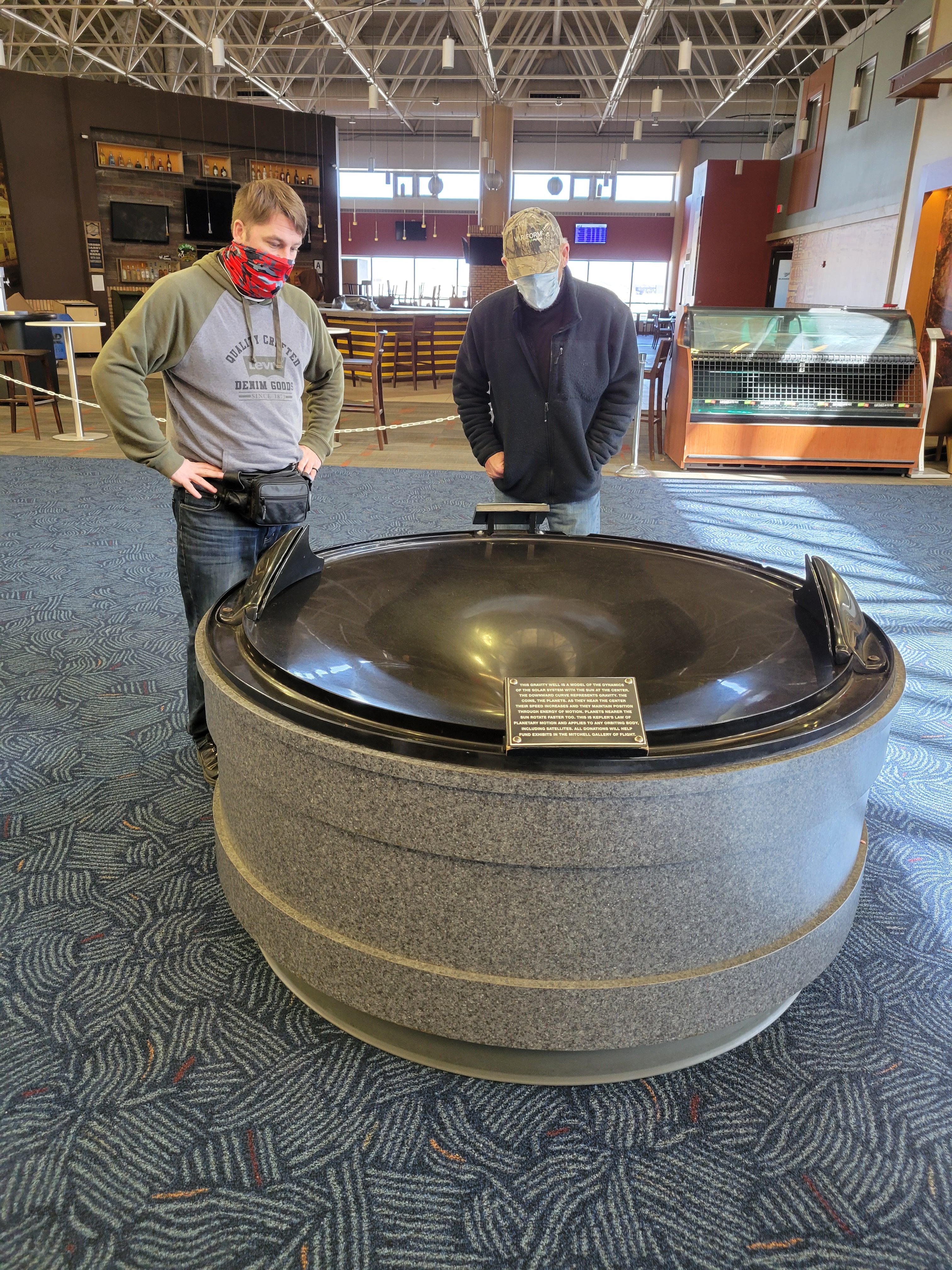
“It does get its hooks in you: It’s hard to stop thinking about it,” says James Renner, a journalist from Akron, Ohio. Renner’s journey into The Secret started in 2004 when he saw a report about the two lawyers who found Cleveland’s treasure in the Greek Cultural Garden, about five miles from where Renner was working at the time.
“I thought, someone should make a documentary about this,” says Renner. It took him about 10 years, but in 2014 Renner moved forward with filming (though the film still has not been released). He followed clues around the country and interviewed the Preiss family, the artists who worked on the book, and the fortunate few who found the treasures in Chicago and Cleveland.
When Expedition Unknown decided to feature a search for The Secret’s treasure, they brought Renner with them to Milwaukee. The most common interpretation of the poem’s clues bring keyseekers to Lake Park, and that’s where Renner led Gates back in 2017. Here, unlike Klein’s interpretation, it’s thought that “ascend the 92” refers to Lake Park’s 92 stairs on Lincoln Memorial Drive (“cast in copper” could refer to Lincoln’s visage on a penny). From there, clues possibly tie to the park’s North Point Lighthouse and end at the foot of a stone lion that decorates a nearby bridge.

During Expedition Unknown, “I think we were right on the spot, but we got this torrential downpour and lightning storm that shut it down,” Renner says. What made the storm even more frustrating was that they lost a rare opportunity to legally dig for the treasure.
“Unfortunately, I think they see it as an annoyance,” Renner says of Milwaukee’s Parks Department. Dig permits are expensive, rarely issued, and Renner says, “If you do find the casque, it’s with the understanding that it remains their property.” If you don’t get a permit, you can face a stiff fine or jail time. He points out that this is in sharp contrast with places like San Francisco, where a casque is believed to be buried in Golden Gate Park. A “Treasure Ranger” program from the San Francisco Parks Department allows you to sign up for a permit that gives you an hour of dig time overseen by a park staff member.
“They understand how cool it is,” Renner says. “For some reason, Milwaukee doesn’t.”
But dig permits haven’t deterred interest in Milwaukee’s treasure. There are over 1200 members of “The Secret (by Byron Preiss) Milwaukee” Facebook group, where theories are shared and clues are examined inside out and upside down.
“Some people share everything, but there’s people holding stuff close to their chest. They want people to weigh in on [clues] to get better ideas if they don’t have it fully fleshed out,” says Westenberger.
Using Post-it notes, Google Earth, and vintage maps, some have focused on Lake Park while others, like Klein, have come up with alternate locations. Some think it’s in the riverside Pere Marquette Park. Another claims it’s buried on the grounds of the historic Pabst Mansion. To get to these spots, their interpretations often take deep dives into American and Wisconsin history and make complicated leaps using math and picture analyses. Renner warns that overinterpretation is a mistake.

“Try to keep it simple, because Byron wrote these for teenagers. I think Byron’s brain worked at a higher level than most of us and he made it harder than he expected it to be,” Renner says, noting that verses are often vague enough to apply to several locations.
Take the first line of the Milwaukee poem. Klein interprets “view the three stories of Mitchell,” as referring to the Wisconsin Club, originally the Mitchell Mansion, home to three generations of the wealthy Mitchell family. But their name is also associated with Mitchell Park, home of three horticulture domes, as well as Mitchell Hall, a three-story building on the University of Wisconsin campus, Mitchell International Airport, and an entire Historic Mitchell Street neighborhood.
Back on the trail, the snow has picked up as Klein and Westernberger follow the final clues into Red Arrow Park, a small square in downtown Milwaukee. The park’s centerpiece is now an ice-skating rink in front of a Starbucks where a dozen people glide in circles through the falling snow.
Inside the Starbucks, Klein pulls out a laptop to show his clues—the red balls being juggled reference the park’s name, he says, and if you look at the woman’s forehead, her hair forms an arrow that matches the park’s logo.
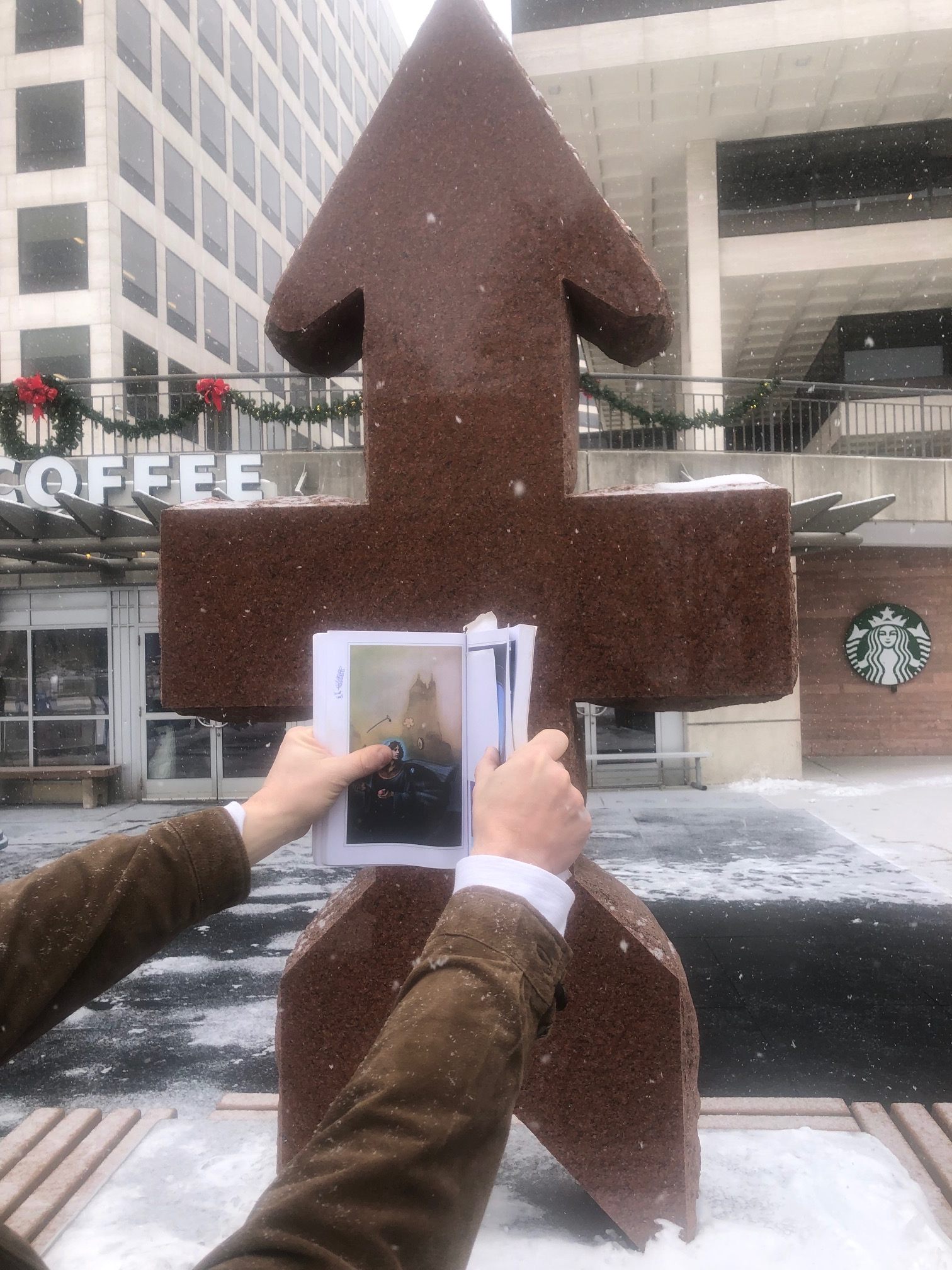
“On a proud, tall fifth,” Klein quotes from the poem as he points to a blueprint from when the park was first constructed, overlayed with a map of how the park currently looks, a redesign that took place in the 1990s and early 2000s. He points on the map to a row of trees that would have been in the park when Preiss wrote The Secret. Klein believes the treasure was buried by the fifth tree, which, depending on how the direction is interpreted, would be underneath where the Starbucks building currently is or on a side of the park that was lopped off and paved over to widen Kilbourn Avenue.
If Klein is right, the treasure is crushed and sealed under concrete and asphalt. That might also be the case in other cities where landscapes have evolved. The other Secret cities are commonly agreed to be San Francisco, New York City, New Orleans, Roanoke, Charleston, St. Augustine, Houston, and Montreal. If the treasures are found, Preiss’s family members still dole out the precious jewels, referred to as “wonderstones” in the book, to anyone able to turn in one of the original casques.
“The amount of time that has gone by is not something Byron considered when he did this adventure,” Renner says. “There’s a lot of things that point to a casque being buried in Battery park in Manhattan. And if it was there, it almost certainly would have been dug up and destroyed during construction [the park has undergone several renovations since 1982]. I think that’s happened to maybe half of them that are out there.” But Renner still thinks it’s possible a couple more casques will be found.
As for Klein and Westenberger, their treasure hunting journey has concluded. The hunt stretched over a few years and took them to several Milwaukee parks. Looking back at their quest, Klein says he most enjoyed the time spent with his father.
“My dad has been going through cancer for the last ten years, getting sicker. We went out together a bunch of times,” Klein says. “Instead of just watching treasure hunters on TV, he became one.” Though their hunt for Byron Preiss’s treasure has for now concluded, the pair still enjoy kicking back and watching Expedition Unknown.
As for his puzzle solution, Klein says, “I’m confident enough that I’ve stopped looking for it.” He thinks for a second—there’s still some doubt in his mind. “But not confident enough to really argue about it.”




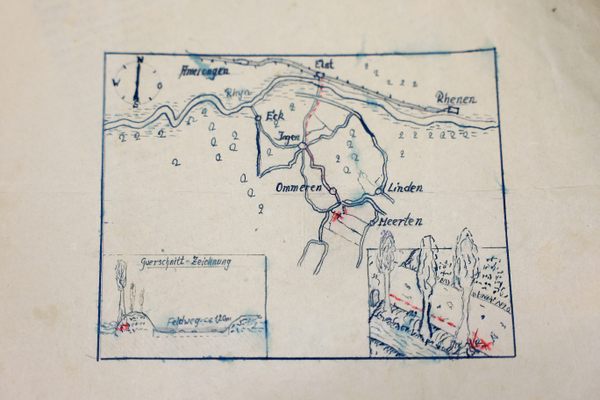

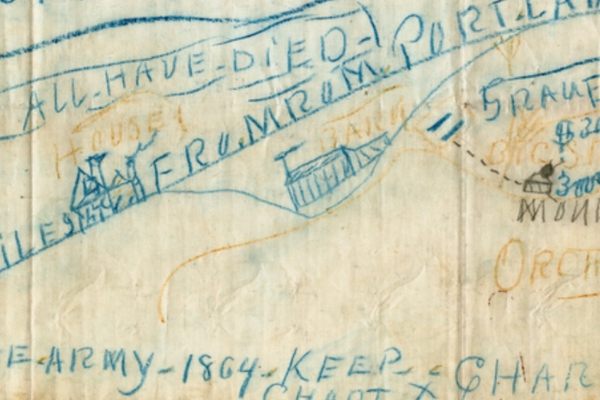


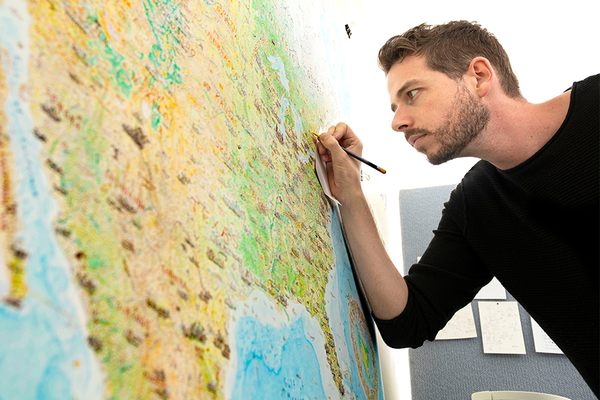
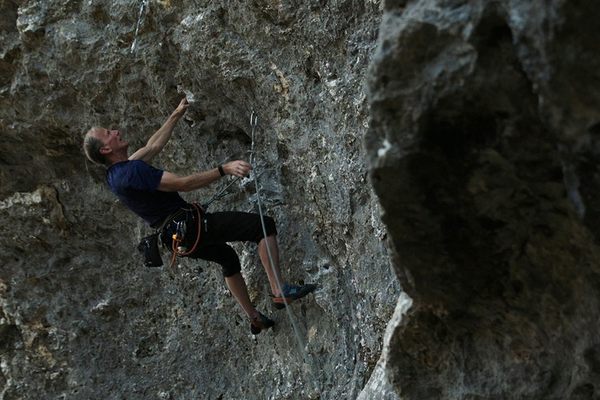



Follow us on Twitter to get the latest on the world's hidden wonders.
Like us on Facebook to get the latest on the world's hidden wonders.
Follow us on Twitter Like us on Facebook